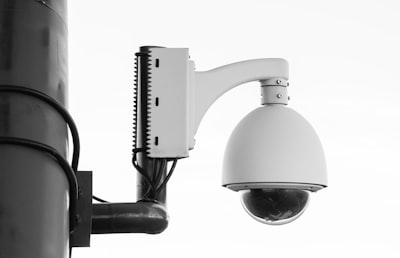As a business owner, it’s important to protect your company’s assets. There are many different ways to do this, and the best method may vary depending on the type of asset you are trying to protect. Taking out an insurance policy to protect company property against theft, damage, or loss is the first step, but there’s plenty a business owner can do beyond that. Keep reading to learn about some of the different ways you can protect your company’s assets.
Install building security systems.

Setting up a security system for your office or building is crucial for protecting company property and anything else of value to your business. Verkada News is an excellent resource for business owners. The company offers a variety of services, including video surveillance, access control, and alarm monitoring. Verkada also provides training and consulting services to help businesses protect their assets and keep their employees safe.
Store sensitive assets in secure locations.
From digital data to the supply of goods your company sells, anything that’s important to your business must be safeguarded. There are a variety of protective measures a company can take to secure the storage of digital and physical assets.
To protect digital data from being compromised, keep it on company computers that are password protected and use firewalls to prevent unauthorized access. Sensitive data can also be stored on secure servers that are not connected to the internet. In addition, companies can use encryption software to protect data that is being transmitted or stored.
Depending on the items and your needs, public storage facilities are a reliable option for keeping physical assets safe. Storage companies are committed to safeguarding a customer’s belongings, so you can trust that there are security systems in place. Many companies offer “first month free storage” deals to new customers, so you can try one out and see if it works for you without a major upfront cost. Check U.S. Storage Units to locate storage facilities near you.
Implement a fraud prevention plan.

One of the most important steps you can take to protect your company’s assets is to implement a fraud prevention plan specific to your business needs. The right approach for your business will depend on the nature of your company and the type of fraud you are most likely to encounter.
Some common measures that can be taken to prevent fraud include:
- Establishing strong internal controls—including policies and procedures for authorizing and recording transactions, handling cash and other assets, and reporting financial information.
- Training employees on how to identify and report suspicious activity.
- Implementing fraud detection tools such as fraud analytics software or transaction monitoring systems.
- Conducting regular risk assessments to identify potential areas of vulnerability.
- Establishing a whistleblower policy to encourage employees to report any suspected fraud.
- Maintaining up-to-date records of all financial transactions and assets.
- Reviewing financial statements and other reports regularly to identify any irregularities.
- Working with a qualified fraud prevention specialist to develop a tailored plan for your business
Develop a disaster recovery plan.
Developing a disaster recovery plan is important for companies of all sizes; a disaster can occur at any time and can have a devastating impact on a company’s operations. A disaster recovery plan outlines the steps a company will take to resume operations after a disaster. The plan should include details on how the company will back up its data, how it will communicate with employees and customers, and any other specifics that are necessary for the business to function. By having a plan in place, a company can minimize the damage caused by a disaster and resume operations as quickly as possible.
Keeping your company safe and secure is the top priority for a business owner. Knowing different ways to protect your company’s assets can help prevent theft and fraud, and help your company recover after a disaster or emergency.
